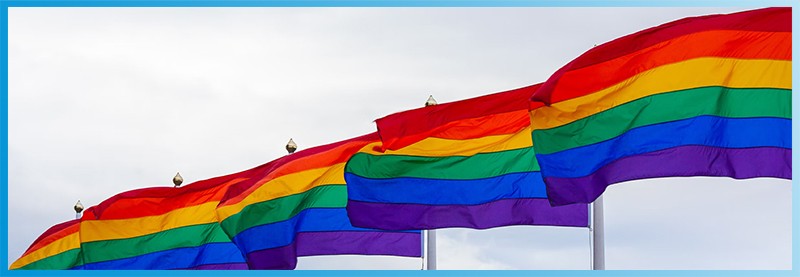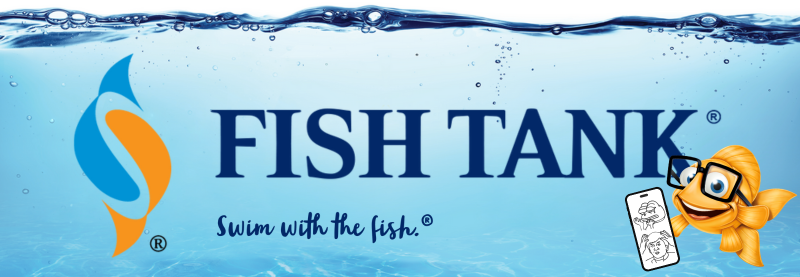Intellectual Property Insights from Fishman Stewart
Mini Article – Volume 22, Issue 11
Share on Social

The Colorful Origins of the Pride Flag
June is Pride Month, and as the celebrations commence, it may come as a surprise to learn that one of the most iconic symbols of LGBTQ+ rights and awareness — the rainbow flag — is not registered for any intellectual property protection. There are no federal trademark or copyright registrations for the design. Instead, intellectual property rights have been used to keep the rainbow flag design free of any restrictions that might hamper the public’s free use of the design.
Despite this lack of intellectual property ownership, the flag does have an identifiable author: Gilbert Baker. Baker designed the original rainbow flag in 1978. The flag was created as a positive symbol of LGBTQ+ identity and solidarity that could serve as an alternative to the more common Pink Triangle symbol, which was a recaptured symbol of oppression. The flag made its debut at Freedom Day in San Francisco that same year. Shortly thereafter, an advocacy organization attempted to lay claim to the flag’s design as a trademark.
In response, Baker hired civil rights attorney Matt Coles to help him block the advocacy organization from filing a federal trademark application or otherwise controlling the public’s free use of the design. Baker could not afford to pay Coles, but Coles took on the case because he understood the importance of keeping the flag as a shared community symbol. Baker and Coles were successful at keeping the organization at bay with just a few demand letters. To this day, the rainbow flag design remains free for all to use.
Intellectual property rights are often used to restrict others from using the protected property. In this case, however, intellectual property rights achieved the opposite outcome. Baker’s choice to not enforce his rights, and Coles’ intervention to assist Baker in doing so, ensured that the public could use, adapt, reproduce, and display the design without fear of infringement liability. Similar outcomes to important community iconographies can also be seen in the use of the “Black Lives Matter” phrase, as was discussed in a previous Fish Bits article.
Published June 3, 2022


Related Content from Fishman Stewart
One of his most famous songs, “Lose Yourself” was recently at the center of a lawsuit. In 2019, Eminem’s publishing company Eight Mile Style sued Spotify claiming that Spotify streamed a number of its musical compositions without proper licenses.
One of the most common challenges is whether AI should be free to train on data that is protected by copyright and owned by third parties without first obtaining permission.
The U.S. Copyright Office (USCO) recently published its latest report on AI and “copyrightability.” In short, the USCO considers only some AI-generated works to be sufficiently creative as to deserve copyright protection, and thus, registration.
Back in the 1940’s assignments by independent contractors could be permanent and irrevocable. Things changed in 1976, when Congress overhauled the Copyright Act.
Generally, copyright protects the specific expression of ideas, such as the arrangement and presentation of visual elements, but it does not protect general concepts or styles.
In the age of the internet, memes are a universal language. A meme is a piece of content, typically an image, video, text, or a combination of these, that spreads rapidly across the internet, often with humorous, relatable, or satirical undertones.
In the US, Thanksgiving is quickly approaching. For many, Thanksgiving and (American) football go hand-in-hand, with the Detroit Lions’ game as much a staple of the holiday as turkey and pie. However, this year’s game arrives amid controversy: Lions’ legendary Hall of Famer Barry Sanders is facing a lawsuit alleging copyright infringement.
After three years of litigation, a court has held that the “beat that goes on” for Cher’s right to continue receiving royalties on songs created during her marriage to Sonny Bono, despite attempts by Sonny’s widow, Mary Bono, to invoke federal copyright termination rights to end those payments.
Watching scary movies is a time-honored Halloween tradition, and one of the greatest movies to watch this time of year is “Ghostbusters” which premiered in 1984.
Halloween is coming up at the end of this month, and we are celebrating a little early with the spooky copyright story of Jap Herron!
IDENTIFYING, SECURING AND ADVANCING CREATIVITY®










